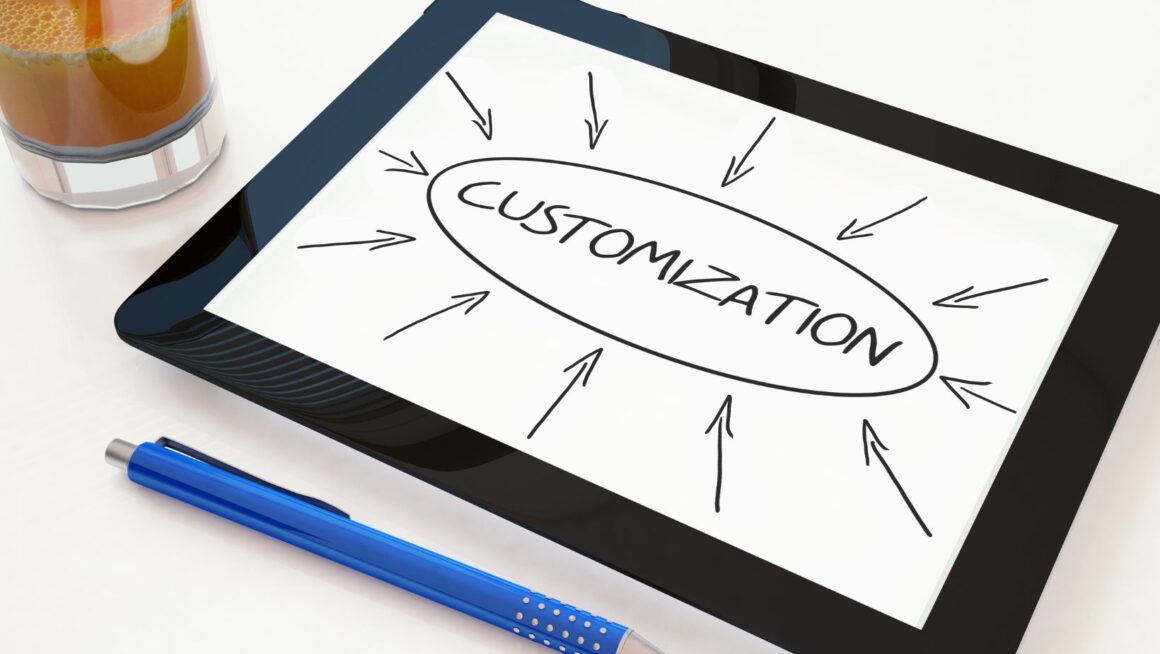In today’s competitive business landscape, standing out from the crowd is more crucial than ever. One powerful way to differentiate your brand and boost performance is through customization strategies. By tailoring products, services, and experiences to individual customer preferences, businesses can create unique value propositions that resonate with their target audience.
This article explores how implementing customization can drive growth, increase customer satisfaction, and ultimately improve your business’s bottom line.
The Power of Personalization
Customization goes beyond simply offering a few product variations. It’s about creating a personalized experience that makes customers feel valued and understood. When done right, personalization can lead to:
- Increased customer engagement
- Higher conversion rates
- Improved customer loyalty
- Greater customer lifetime value
By leveraging data and technology, businesses can offer tailored solutions that address specific customer needs and preferences, establishing a level of customer loyalty that’s hard to replicate with one-size-fits-all approaches.
Implementing Customization Across Your Business
Product Customization
Offering customizable products allows customers to create something unique that perfectly fits their needs. This strategy can be applied across various industries:
- Fashion: Allow customers to design their own clothing or accessories
- Technology: Let users configure devices with specific features or components
- Food and Beverage: Offer customizable meal plans or personalized flavor combinations
Service Personalization
Tailoring services to individual customer needs can significantly enhance the overall experience:
- Financial Services: Provide personalized investment advice based on risk tolerance and financial goals
- Healthcare: Offer customized treatment plans based on individual patient data
- Education: Deliver adaptive learning experiences that adjust to each student’s progress
Marketing Customization
Personalized marketing campaigns can dramatically improve engagement and conversion rates:
- Email Marketing: Segment your audience and send targeted content based on interests and behaviors

- Dynamic Website Content: Display personalized product recommendations or content based on user browsing history
- Social Media Advertising: Use demographic and behavioral data to create highly targeted ad campaigns
The Role of Data in Customization
Effective customization relies heavily on data collection and analysis. By gathering and interpreting customer data, businesses can:
- Identify patterns and trends in customer behavior
- Anticipate customer needs and preferences
- Create more accurate customer segments
- Develop predictive models for personalized recommendations
It’s crucial to implement robust data management systems and adhere to privacy regulations to build trust with your customers while leveraging their data for customization.
Overcoming Customization Challenges
While the benefits of customization are clear, implementing these strategies can present some challenges:
- Balancing customization with scalability
- Managing increased complexity in production and inventory
- Ensuring data privacy and security
- Avoiding overwhelming customers with too many choices
To address these challenges, businesses should:
- Invest in flexible manufacturing processes and supply chain management
- Implement robust data protection measures
- Use guided customization to simplify the process for customers
- Continuously test and refine customization offerings based on customer feedback
Measuring the Impact of Customization
To ensure your customization strategies are delivering results, it’s essential to track key performance indicators (KPIs) such as:
- Customer satisfaction scores
- Conversion rates
- Average order value
- Customer retention rates
- Net Promoter Score (NPS)

Regularly analyzing these metrics will help you refine your customization approach and maximize its impact on your business performance.
Conclusion
Customization strategies have the potential to transform your business performance by creating unique value propositions that resonate with customers on a personal level. By implementing tailored approaches across products, services, and marketing efforts, businesses can drive engagement, boost satisfaction, and foster long-term loyalty.
As technology continues to advance, the opportunities for personalization will only grow, making it an essential strategy for businesses looking to thrive in an increasingly competitive marketplace.

